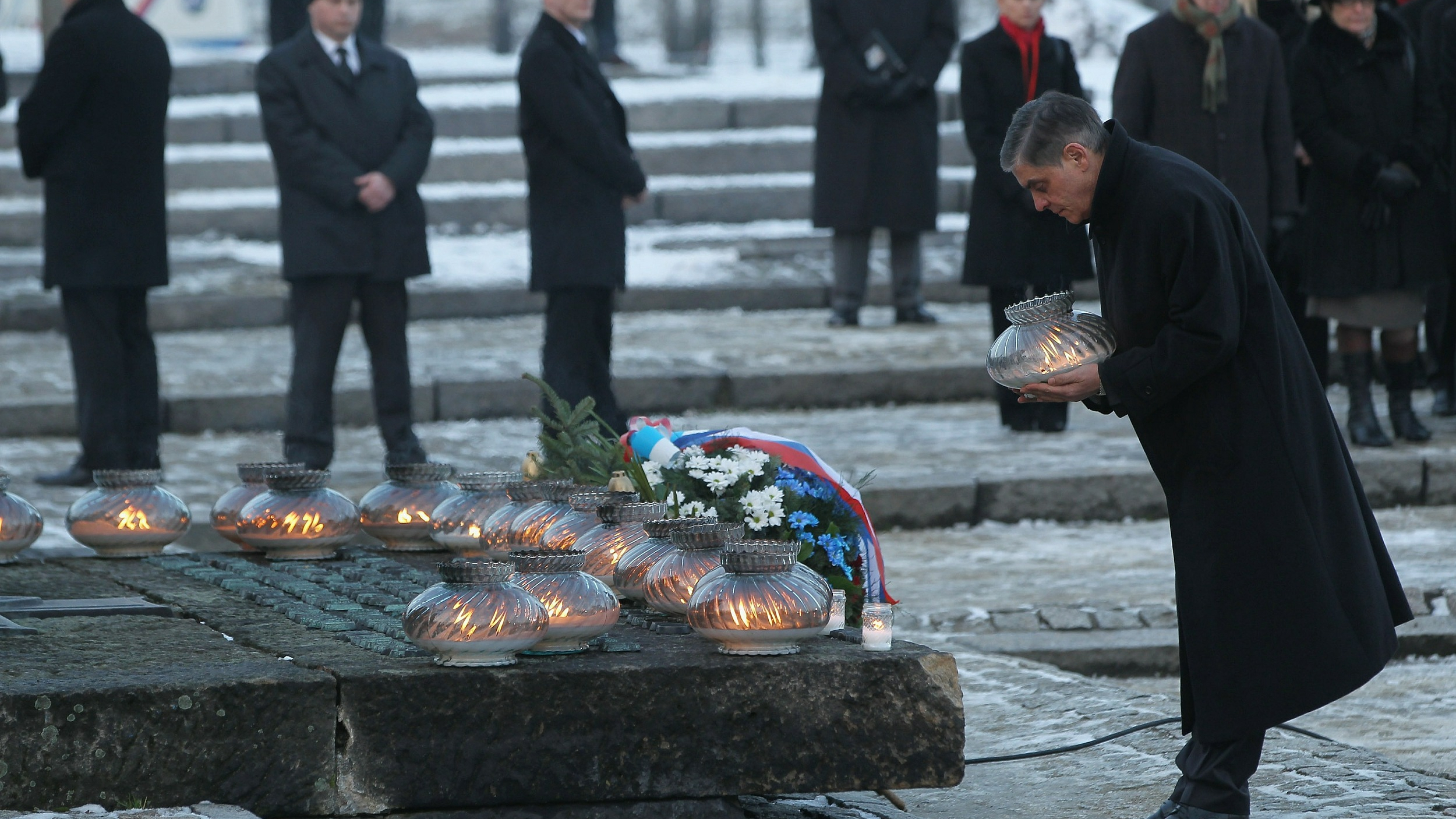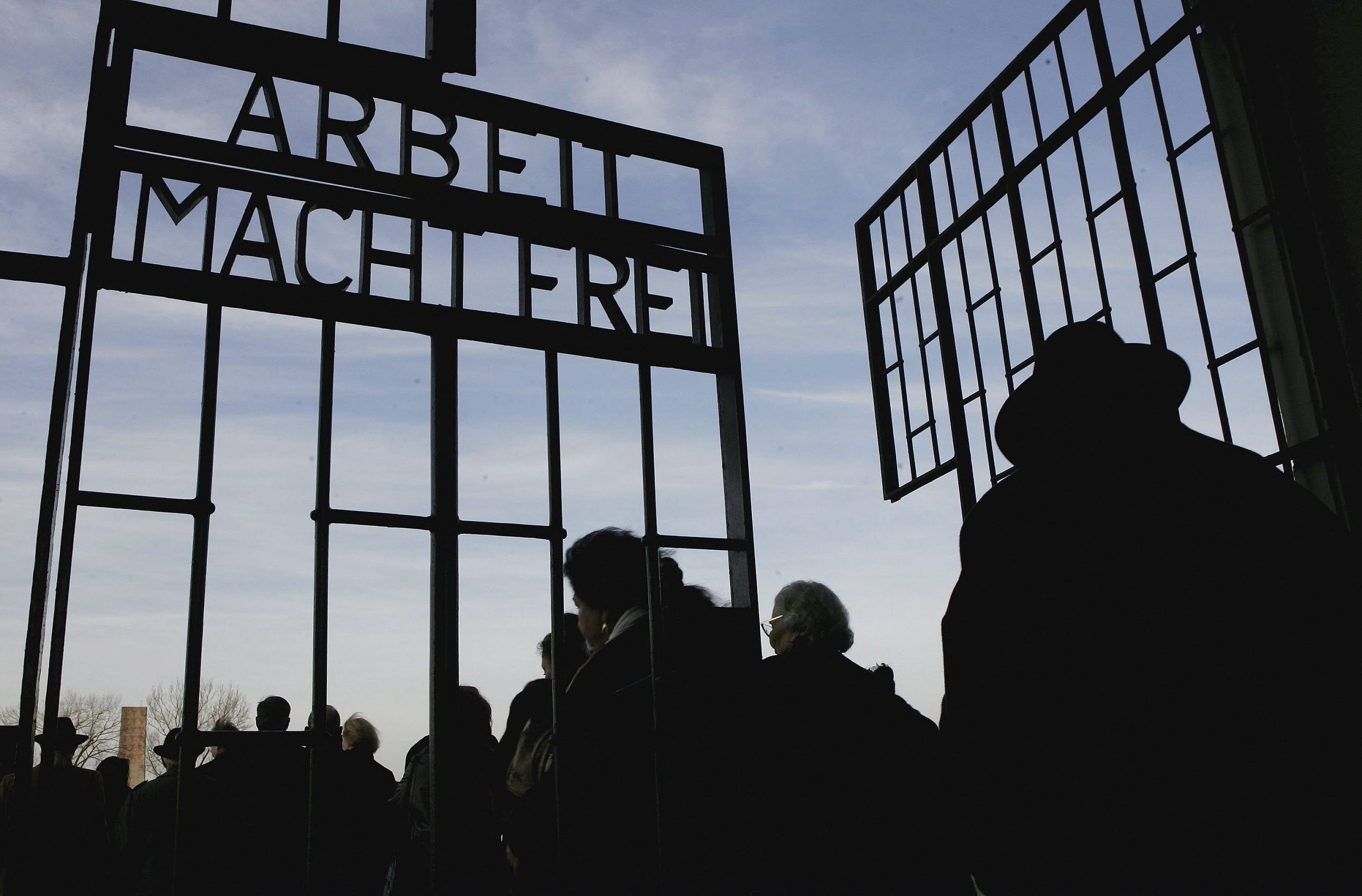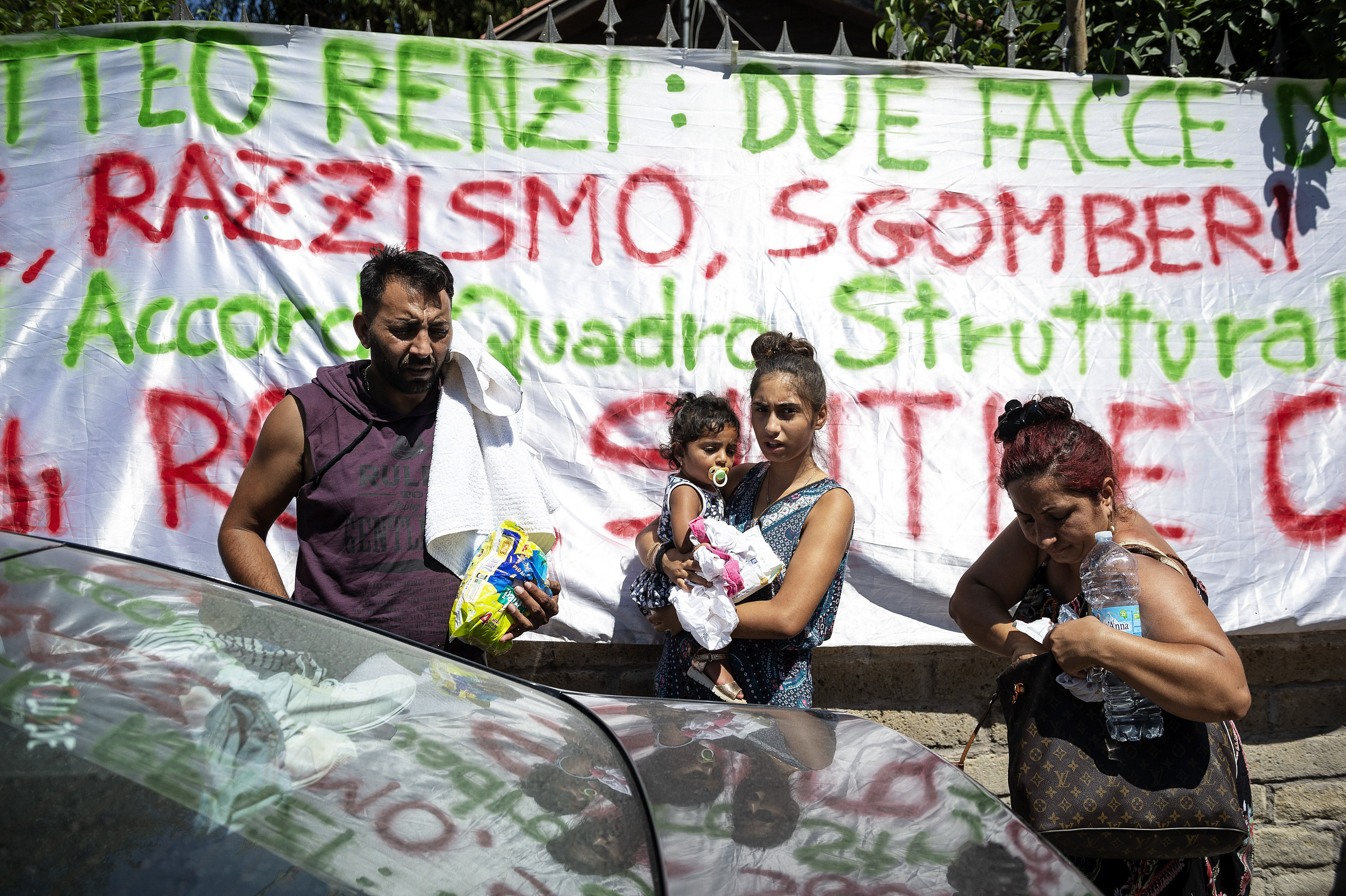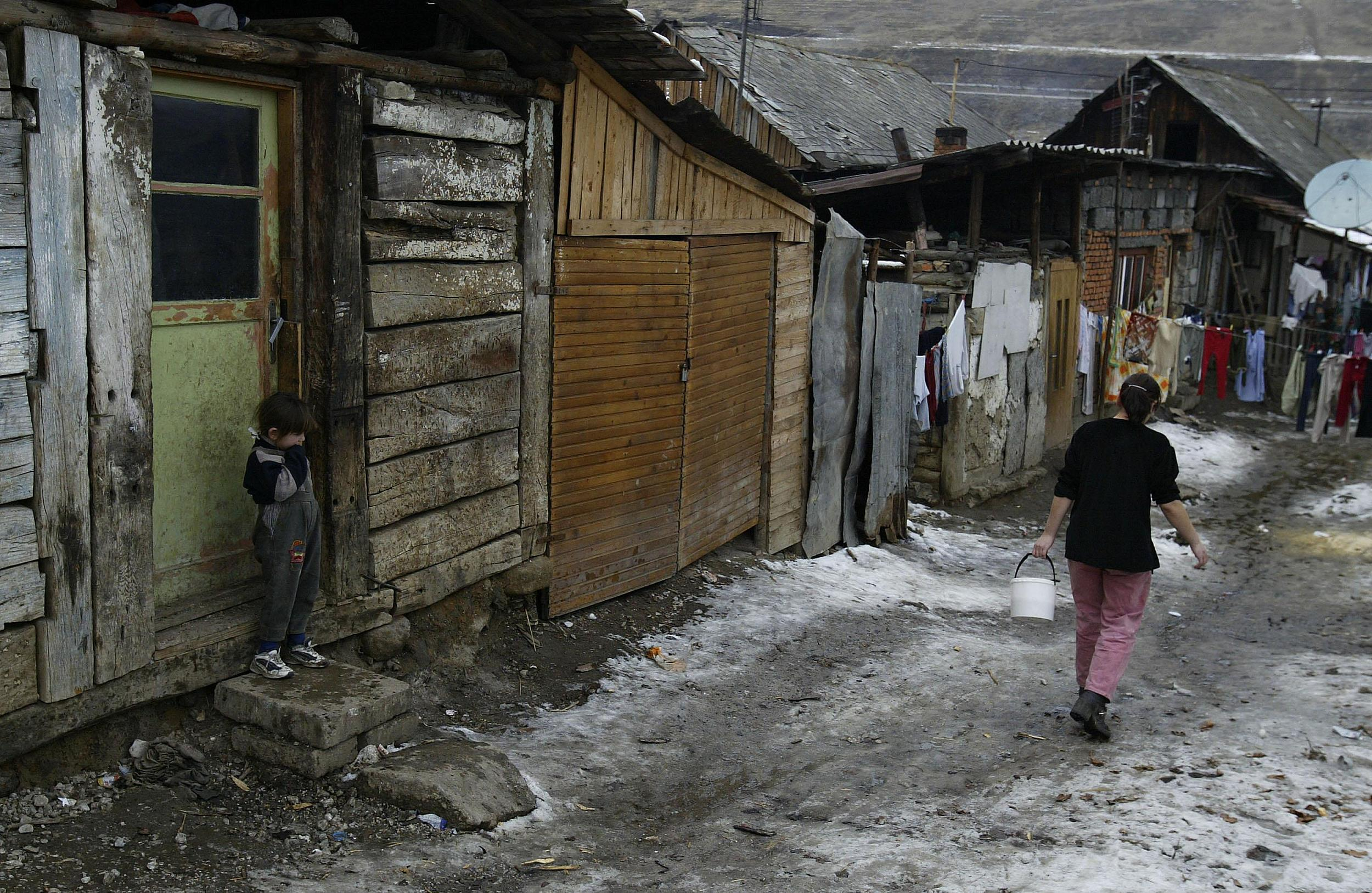

Romani Rose, head of the Central Council of Sinti and Roma in Germany, lays candles at the sire of the former Auschwitz-Birkenau nazi concentration camp in an event to mark the 66th anniversary of its liberation in Oswiecim, Poland, January 27, 2011. /VCG Photo
On August 2, 1944, about 3,000 members of the ethnic Roma and Sinti groups were gassed by the Nazis at the Auschwitz-Birkenau concentration camp. Now, the day is remembered as Roma Holocaust Memorial Day.
Yet Roma victims of Nazi terror remain a footnote in history. And 75 years on, members of the ethnic minority still live on the edges of society.
The 'gypsy question'
Some 500,000 Roma and Sinti are estimated to have perished under the Nazis, equivalent to about half of Europe's Roma population at the time.
"Asocial," "work shy," "racially inferior," a "plague": these were just some of the labels attached to them by a brutal regime seeking to engineer a superior race.
The Nazis weren't the first to discriminate against gypsies. An itinerant population spread all over Europe – from Hungary to France, Romania and Yugoslavia – living on the outskirts of communities and speaking their own language, they have often been viewed throughout history as thieves, beggars and criminals.
But the Nazi regime took unprecedented measures to wipe them out, subjecting them to forced sterilization and castration, locking them up in ghettoes and concentration camps, allowing the notorious Nazi doctor Josef Mengele to perform medical experiments on children, and eventually sending them to their deaths in gas chambers.

Roma survivors of the Holocaust enter the former concentration camp at Sachsenhausen in Oranienburg, Germany, December 15, 2006. /VCG Photo
As early as 1938, a Nazi directive was put out calling for a "final solution to the gypsy question," similar to the one targeting Jews.
Just like Jews have a word to describe the attempted extermination of their people – the ''Shoah," meaning calamity – so Roma also have a term for their own Holocaust: ''Porajmos" or "Pharrajimos," meaning "the devouring."
Belated recognition
In total, some 17 million people fell victim to Nazi terror: Jews, homosexuals, disabled people, Jehovah's Witnesses, political opponents and anyone else who did not fit the "Aryan ideal."
But while the Holocaust is commemorated every year around Europe with ceremonies, memorials and exhibits, the plight of the Roma and Sinti has been all but ignored.
Germany only recognized them as victims of Nazi persecution in 1982. A "Memorial to the Sinti and Roma of Europe Murdered under National Socialism" was erected near the Reichstag in Berlin in 2012.
And in 2015, the European Parliament declared August 2 Roma Holocaust Memorial Day, 70 years after the end of World War II.
For many around the world today, the Holocaust is mainly understood as the genocide against the Jews, which claimed six million lives.

Roma families are evicted from the Camping River Village in Rome, Italy, July 26, 2018. /VCG Photo
"The Roma are forgotten victims of the Holocaust for many Europeans," EU Commission Vice President Frans Timmermans and EU Commissioner for Justice Vero Jourova noted last year on Roma Holocaust Memorial Day.
Poor, hungry, unemployed
Even today, Europe's Roma minority – which now numbers about 10-12 million – lives largely excluded from society.
In a 2016 survey, the European Union Agency for Fundamental Rights (FRA) found that 80 percent of Roma it talked to were at risk of falling into poverty. Meanwhile, unemployment, hunger and lack of basic necessities, like access to running water and electricity, were widespread.
The report revealed "an unsettling but unavoidable reality: the European Union’s largest ethnic minority continues to face intolerable discrimination and unequal access to vital services," FRA concluded.
Under attack
Amid a rising tide of far-right extremism in Europe, Roma and Sinti have again become prime targets.
In March, gangs carried out a series of violent attacks on Roma on the outskirts of Paris, following fake reports that they were kidnapping children and women.
In 2017, an arson attack on a Roma family's camper van in Italy killed three sisters, while in Ukraine last year, suspected far-right sympathizers set fire to a Roma camp and stabbed a man to death.

A Roma child stands in the doorway of its home while a family member goes to fetch drinking water from the local well in the Roma slum of Bystrany in eastern Slovakia, February 26, 2004. /VCG Photo
In perhaps the worst spate of violence in recent years, anti-Roma attacks in Hungary in 2008-2009 left six Roma dead, including a five-year-old child, and some 55 injured.
Anti-Roma protests have also multiplied, from Bulgaria to Italy and the Czech Republic.
Roma rights campaigners have complained that politicians increasingly spew hate speech, including age-old tropes that gypsies are filthy, lazy and prone to crime.
At an anti-Roma rally in Hungary in May, far-right party leader Laszlo Toroczkai railed against "gypsy terrorists" and "gypsy crime." Italian Interior Minister Matteo Salvini has threatened to raze Roma camps.
Last year, the European Roma Rights Centre slammed Czech President Milos Zeman for his "strident xenophobic and intolerant statements" against Roma.
Bulgaria's former vice-president Valeri Simeonov was meanwhile found guilty of hate speech in 2017 after saying Roma were lazy, the women were "street bitches" and the children played with the pigs.
"Attacks on Roma are once again on the rise," John Warmisham, spokesperson on Roma and Traveller Issues for the Council of Europe's Congress of Local and Regional Authorities, noted on Roma Holocaust Memorial Day last year. "Sadly, anti-Gypsyism is still not defeated today."
The Congress is now trying to get communities around Europe to sign its Declaration against anti-Gypsyism and clearly position themselves against violence and hatred. So far, the document has been signed by over 120 municipalities, cities and regions in 34 countries.
Friday's Roma Holocaust Memorial Day commemorations will remain low key. A ceremony is due to be held at Auschwitz-Birkenau. Survivors, Roma officials and U.S. civil rights figure Jesse Jackson are expected to attend.

Copyright © 2018 CGTN. Beijing ICP prepared NO.16065310-3
Copyright © 2018 CGTN. Beijing ICP prepared NO.16065310-3